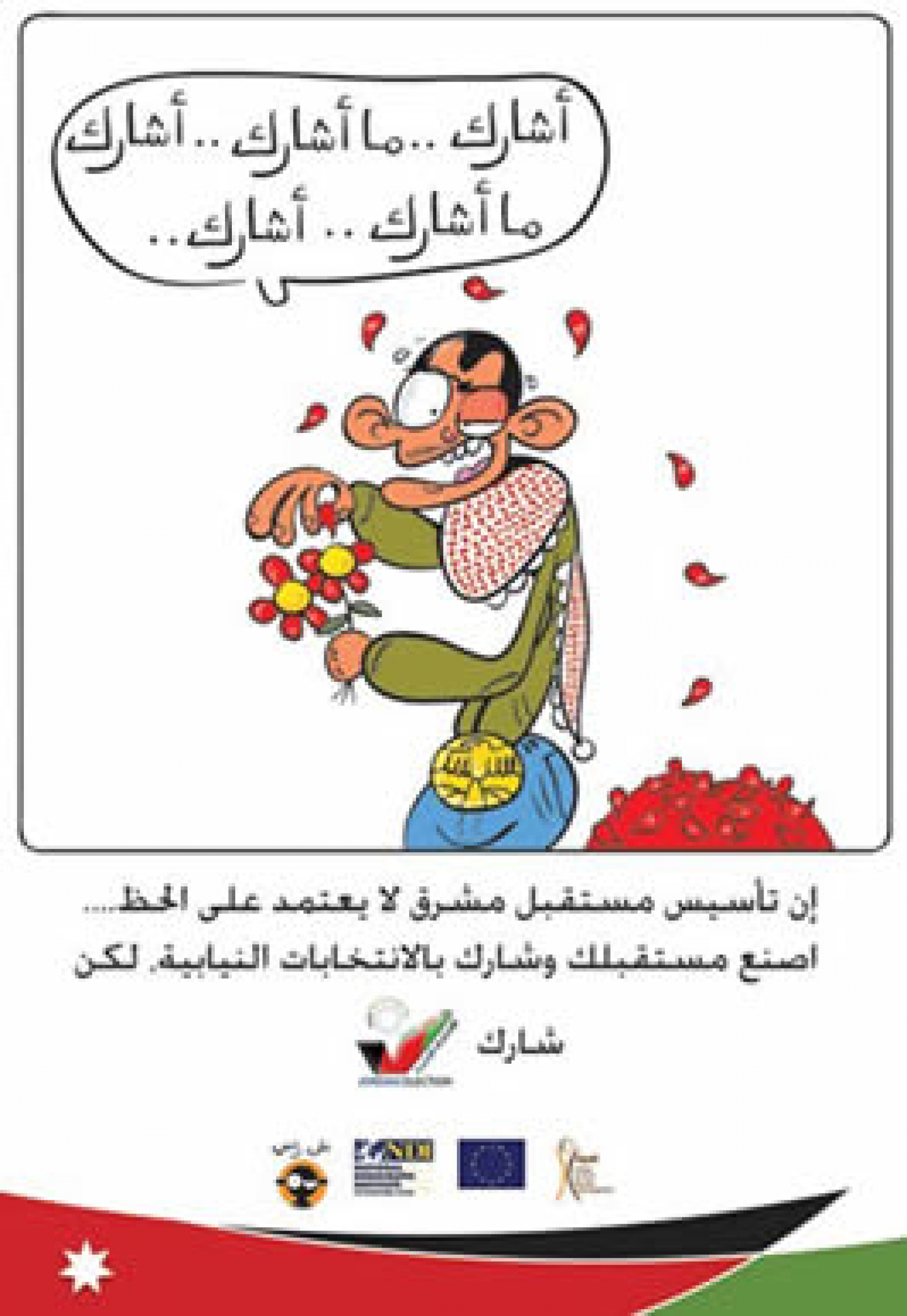
SHARE
More than 65 percent of Jordanians are under the age of 30, and 43 percent of potential voters are 18 to 25. Those demographics carry the potential for accelerated political reform, provided the country's young people, who have historically been excluded from the political process, decide to make their voices heard.
To encourage young Jordanians to participate in politics, the Al-Hayat Center for Civil Society Development has launched a campaign focused on engaging and registering young voters for Nov. 9 parliamentary elections. The campaign is based in part on the findings of a survey conducted by Al-Hayat, in partnership with NDI, designed to uncover young people's attitudes toward political involvement and specifically their experiences in the previous election in 2007.
The survey sampled 2,100 Jordanians between the ages of 18 and 30 from the country's 12 governorates. The participants also represented a cross section of education levels, marital statuses, professional sectors and sexes. The survey asked questions about difficulties encountered at polling stations, efficacy of campaign literature and advertisements, and respondents' overall confidence in the role of parliament. It also asked the young people to estimate their anticipated level of participation in the upcoming elections.
jordanelection.com
The results of Al-Hayat's survey are available publicly through a user-friendly website, www.jordanelection.com, where activists, researchers, candidates and policymakers can track trends in specific youth subgroups, particularly first-time voters. For instance, the survey showed that young people strongly support domestic election monitoring, which is useful information for activists pressing the government to allow civil society organizations to observe the election process.
To help visualize results and make better connections across regions, the findings are displayed on a colorful interactive map divided into national, regional and governorate levels. The data can also be explored by gender, age and education level, giving the user detailed demographic information. The website's simple design combined with its in-depth presentation of the survey data is a powerful tool for designing a variety of election-related youth programs.
The results revealed a number of concerns over previous elections and how future polls will be conducted. For example, participants said that during the 2007 elections they faced overcrowded polling centers and witnessed vote-buying and other violations. For this year's elections, respondents expressed a continued lack of confidence in parliament and said they do not have information on how Jordan's recently-amended electoral law might affect procedures for the November polls.
Using the survey results, Al-Hayat tailored its campaign to address those issues of particular concern in hopes that it would encourage young people to participate. In cooperation with local authorities and civil society organizations Al-Hayat has been holding roundtables where its staff and volunteers engage directly with young Jordanians, answering questions about registration and the new electoral law and encouraging youth to participate in the political process. More than 800 young people have participated in these events so far, and Al-Hayat will hold them throughout the summer.
Al-Hayat has also created a series of posters and videos promoting the importance of youth participation, and encouraging young voters to register and research candidate platforms before voting. These videos are listed as "most viewed" on the increasingly popular Jordanian website 3alarasi, which carries short videos and caricatures on current social and political matters.
Related:
- In Jordan, Coalition Unites for Electoral Reform»
- Iraqi Youth Share Ideas, Build Skills at Leadership Camp»
- 'Leaders of Tomorrow' Conference Kicks Off Collaborative Program for North African Women»
Pictured above: One of three posters produced for Al-Hayat's voter participation campaign. The Arabic reads: "'Shall I participate... Shall I not participate...' Building a prosperous future does not depend on luck; build your own future and participate in the parliamentary elections. Participate."
Published on August 19, 2010



